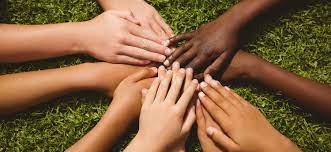Apart from reporting hate crimes, the adolescents also discussed the difficulties they faced balancing their Indian identity with their desire to be seen as American…reports Asian Lite News
Young Indian-Americans, who are among more than 3.5 million South Asians living in the US, regularly face racial and ethnic discrimination as early as preschool, which influences the development of their identities, says a new study.
The second-generation Indian-American adolescents are “especially vulnerable to discrimination as they explore and form their identities”, according to the study by Texas A&M University School of Public Health.
The study surveyed nine Indian-Americans between the ages of 12-17 years who talked about their experiences with peers at school, who made discriminatory comments about Indian culture, language or religion.
“This one kida found a rock and said ‘look it’s your God’,” and “in math class we had like little dots and we would have to… put them into groups… And a white kid was saying ‘is this your God?’ and put it on his forehead”, an Indian-American student said.
“Then sometimes they would say stuff about the food or they would mock an Indian accent like, ‘I don’t like Indian food’ some people have said things like ‘it’s gross’ or ‘it’s weird’ or ‘it smells really bad,” he added.
Apart from reporting hate crimes, the adolescents also discussed the difficulties they faced balancing their Indian identity with their desire to be seen as American.
A few of them reported feeling angry that they did not have white skin like their friends, and their desire to be more “American” instead as early as preschool.
This balancing act often relies on code switching, where the interviewees spoke and acted differently when with family and at school, the study, published in the journal Frontiers in Public Health, said.
“The word Indian-American, it means you live between two worlds, my experience. I come home, I’m Indian. I live Indian lives, I eat Indian food. I step over my threshold, I become American. Go to school, I’m an American… Your parents don’t kind of understand the western world and the western world doesn’t really understand the Indian world. You live between two worlds and you’ve got to be knowledgeable to know how to balance them,” another student said.
In some cases, these adolescents felt they were seen as fitting into neither group.
The study showed that Indian-American youth begin facing discrimination as early as preschool or elementary school.
These adolescents were all classified as second-generation, that is, they were born in the US and had parents who emigrated from India after the age of 18.
The research team was led by Jamilia Blake, PhD, School of Public Health professor, Indian-American doctoral graduate Asha K. Unni, and colleagues from Texas A&M University and Davidson College.
Asian Indians were the first South Asians to immigrate to the US in the late 1800s and are currently the largest ethnic group in America.

Leave a Reply